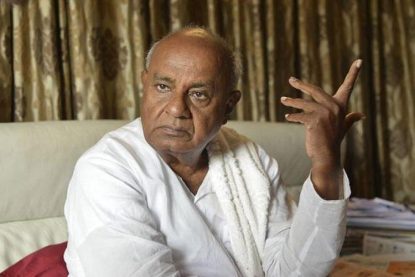
Oxford University vaccine ‘effective’ at preventing COVID-19; shows 70% protection
PTI, Nov 23, 2020, 4:42 PM IST

London: The vaccine candidate being trialled by Oxford University on Monday presented crucial Phase 3 interim results which show that it is “effective” at preventing COVID-19 and offers a high level of protection from the deadly virus.
The ChAdOx1 nCoV-2019, being produced in collaboration with AstraZeneca, was found to be 70.4 per cent effective when combining data from two dosing regimens.
However, in two different dose regimens, the vaccine”s efficacy was 90 per cent in one and 62 per cent in the other. The higher efficacy regimen used a halved first dose and standard second dose and early indications are that the vaccine could reduce virus transmission from an observed reduction in asymptomatic infections.
“These findings show that we have an effective vaccine that will save many lives. Excitingly, we”ve found that one of our dosing regimens may be around 90 per cent effective and if this dosing regimen is used, more people could be vaccinated with planned vaccine supply,” explained Professor Andrew Pollard, Director of the Oxford Vaccine Group and Chief Investigator of the Oxford Vaccine Trial.
UK Prime Minister Boris Johnson said, “Incredibly exciting news the Oxford vaccine has proved so effective in trials. There are still further safety checks ahead, but these are fantastic results.”
Health Secretary Matt Hancock also expressed excitement and relief at the results from the “homegrown” vaccine and said that if everything goes to plan, the UK can start rolling out the vaccines as early as next month with bulk in early 2021.
“I really welcome these figures – this data – that show that the vaccine in the right dosage can be up to 90 per cent effective… we”ve got 100 million doses on order and should all that go well, the bulk of the rollout will be in the New Year,” said Hancock.
More than 20,000 volunteers were involved in the trial, half in the UK and the rest in Brazil. There were 30 cases of COVID in people who had two doses of the vaccine and 101 cases in people who received a dummy injection.
When volunteers were given two “high” doses the protection was 62 per cent, but this rose to 90 per cent when people were given a “low” dose followed by a high one. It”s not clear why there is a difference, which will be analysed further.
Professor Sarah Gilbert, Professor of Vaccinology at the University of Oxford, added: “The announcement today takes us another step closer to the time when we can use vaccines to bring an end to the devastation caused by SARS-CoV-2 (COVID-19).”
Oxford will now support AstraZeneca in submitting both the interim Phase 3 efficacy data and the extensive safety data to all regulators across the world, including in the UK, Europe and Brazil for independent scrutiny and product approval, including for emergency use. The clinical trials, enrolling over 24,000 participants from diverse racial and geographical groups in the UK, Brazil and South Africa, will now continue to final analysis.
Further trials are being conducted in India, the US, Kenya and Japan and the trial team expect to have under 60,000 participants by the end of the year, the university said.
The Oxford vaccine (ChAdOx1 nCoV-19) is made from a virus, which is a weakened version of a common cold virus (adenovirus), that has been genetically changed so that it is impossible for it to grow in humans.
Adenovirus vaccines have been researched and used extensively for decades and have the significant benefit that they are stable, easily manufactured, transported and stored at domestic fridge temperature (2-8 degrees C), meaning the vaccine, once approved, can be easily distributed using existing medical facilities and deployed very rapidly.
The result of the latest vaccine compares with the Pfizer and Moderna vaccines, which were recently shown to be 95 per cent and 94.5 per cent effective, respectively. The Oxford University vaccine, codenamed AZD1222, is comparatively cheaper and easier to store.
Additional cases are expected to accrue by the time of the final analysis and future analyses will determine the duration of protection from the Oxford vaccine. Crucially, no serious side effects or safety events related to the vaccine have been identified.
“This is a great day for the University of Oxford and for universities everywhere. Pushing at the frontiers of knowledge with partners across the globe and putting our extraordinary brainpower in service to society, is what we do best,” said Professor Louise Richardson, Vice-Chancellor at the University of Oxford.
The university said that its partnership with AstraZeneca means a joint commitment to provide the vaccine on a not-for-profit basis for the duration of the pandemic across the world, and in perpetuity to low and middle-income countries.
“This vaccine”s efficacy and safety confirm that it will be highly effective against COVID-19 and will have an immediate impact on this public health emergency,” said Pascal Soriot, CEO, AstraZeneca.
“Furthermore, the vaccine”s simple supply chain and our no-profit pledge and commitment to broad, equitable and timely access means it will be affordable and globally available supplying hundreds of millions of doses on approval,” he said.
The latest interim Phase 3 data, being submitted for scientific peer review and publication, builds on Phase 1 and 2 trial results which have shown that the vaccine induces strong antibody and T cell immune responses across all age groups.
According to Johns Hopkins data, there are 58,696,029 COVID-19 cases and 13,88,724 deaths across the world.
Udayavani is now on Telegram. Click here to join our channel and stay updated with the latest news.
Top News
Related Articles More

Surgical options for Parkinson’s disease

Breast cancer to cause a million deaths a year by 2040: Lancet commission

Will to resist temptations, achieve goals more trustworthy than using apps, study finds

Govt directs e-commerce firms to remove drinks, beverages from ‘health drinks’ category

Experiencing abuse, neglect as child linked to lifelong ill-health: Study
MUST WATCH
Latest Additions

India’s boundaries are completely secure: Rajnath Singh

Complaint filed against Flipkart, BigBasket for allegedly making employee work on election day

DKShi ‘kidnapped’ 9-year-old girl for property: HDD

Woman can’t be held accountable for abetting suicide of lover due to ‘love failure’: Delhi HC

I don’t believe in star power: Vidhu Vinod Chopra on why content matters more to him
























